Creator Rachel Kondo and star Anna Sawai explain the meaning of Mariko’s poem and her complicated reunion with Ochiba in Shōgun episode 9.
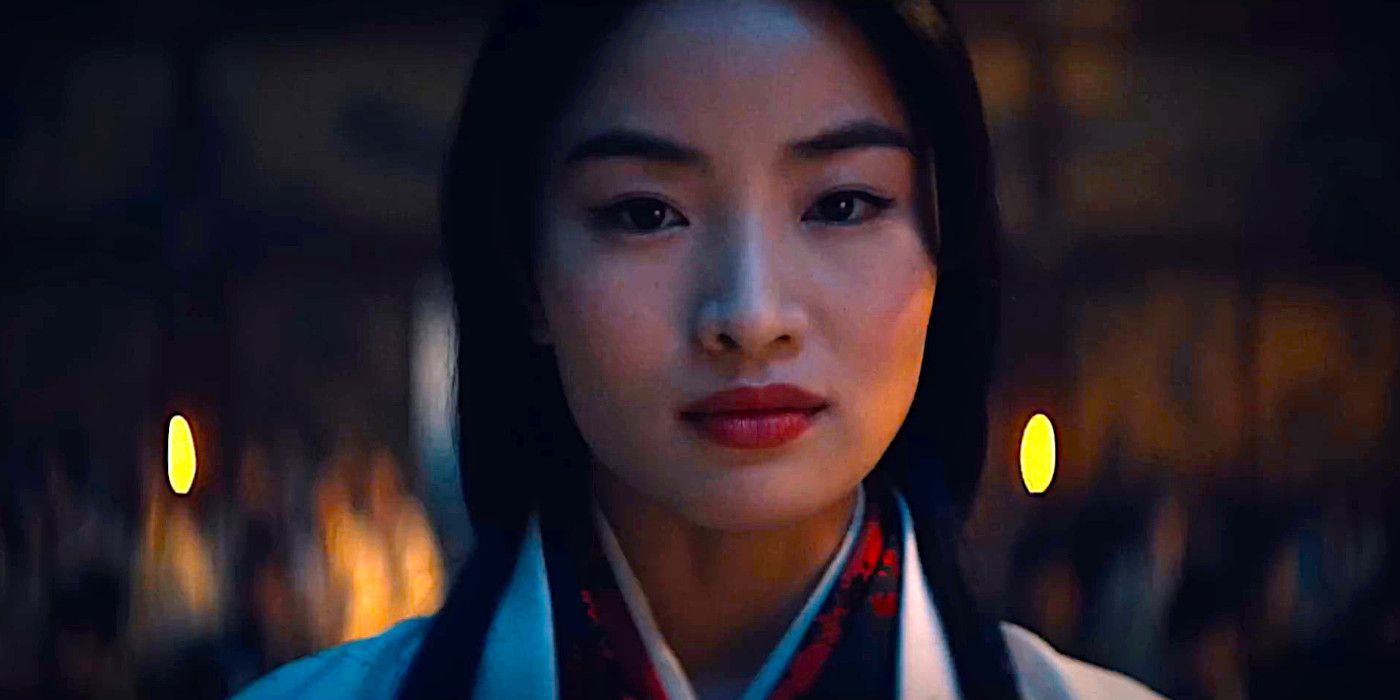
Shōgun co-creator Rachel Kondo and Mariko actor Anna Sawai explain the meaning of Mariko’s poem, touching on the character’s relationship with Ochiba. Co-created by Justin Marks, the acclaimed FX historical drama, which adapts the 1975 novel by James Clavell, is now nearing its conclusion. Episode 9, “Crimson Sky,” sees Mariko and Blackthorne (Cosmo Jarvis) head to Japan’s Osaka Castle where she reunites with childhood friend Ochiba (Fumi Nikaido) before ultimately sacrificing herself in the service of Lord Toranaga (Hiroyuki Sanada).
In a key moment in Shogun episode 9, a poem that Mariko recites to Lady Ochibo begins, ” While the snow remains / Veiled in the haze of cold evening / A leafless branch… ” with the rest meant to be continued in a poetry competition.
In the most recent episode of FX’s Shōgun: The Official Podcast, via FX Networks, Kondo and Sawai break down the lines of poetry that Mariko delivers to Ochiba not long before her death in Shōgun episode 9.
The co-creator and star explain the deeper meaning behind Mariko’s poem, which is actually connected to Lady Mariko’s real-life inspiration, Hosokawa Gracia, as well as the complicated dynamic between Mariko and Ochiba. Check out their comments below:
Rachel Kondo: “I think the relationship between Ochiba and Mariko is basically the entire underpinning of not only this episode but, strangely, for the whole story. It’s all going back to this girlhood friendship they had.
“One of the scenes that is my favorite is the one between Mariko and Ochiba as they kind of parse out each other’s intentions they’re playing to the past. And ultimately, I think it’s one friend saying, ‘I want you to stay alive,’ and it’s another friend saying, ‘I want you to understand,’ and then it ends on that gorgeous line of poetry that is so Mariko.”
Anna Sawai: “It’s an actual poem that Hosokawa Gracia had also recited or left… It basically means, ‘Flowers are only flowers because they fall.’ And I think it’s just so beautiful because Mariko knows what’s going to happen right after this. Death is awaiting, but that is what makes life so beautiful, is that’s it’s not lasting forever. There’s always going to be an end…
“I think it’s so sad because they have such a strong bond, but they’re not able to be truthful to their relationship because of society and because of the men, and being put in this position. It’s so bittersweet the scenes that they do have, but I think till the end they just care about each other. They want each other to kind of wake up.”
Mariko’s Death In Shōgun Episode 9 Explained
Anna Sawai’s Character’s Death Has Long Been Foreshadowed
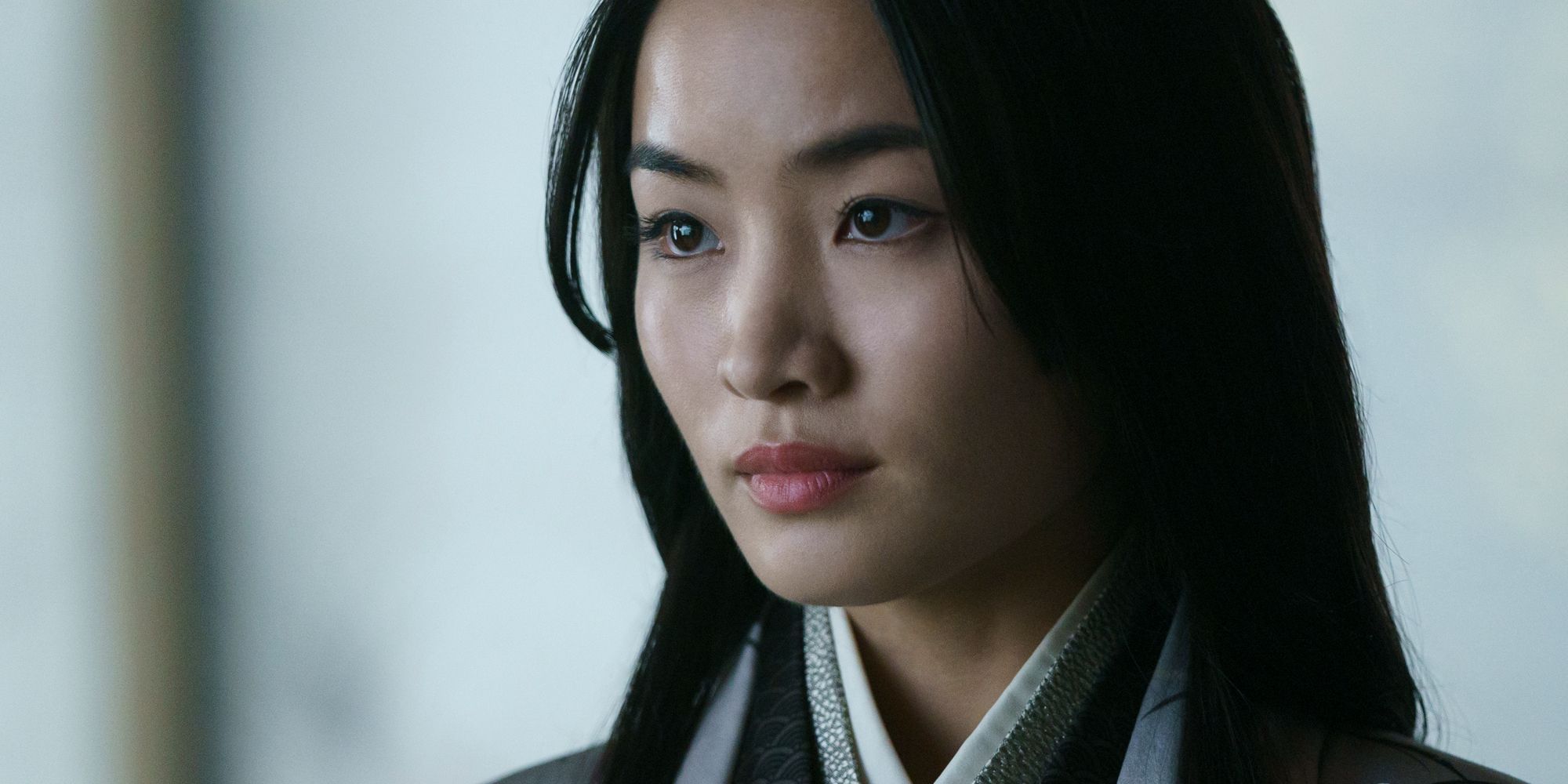
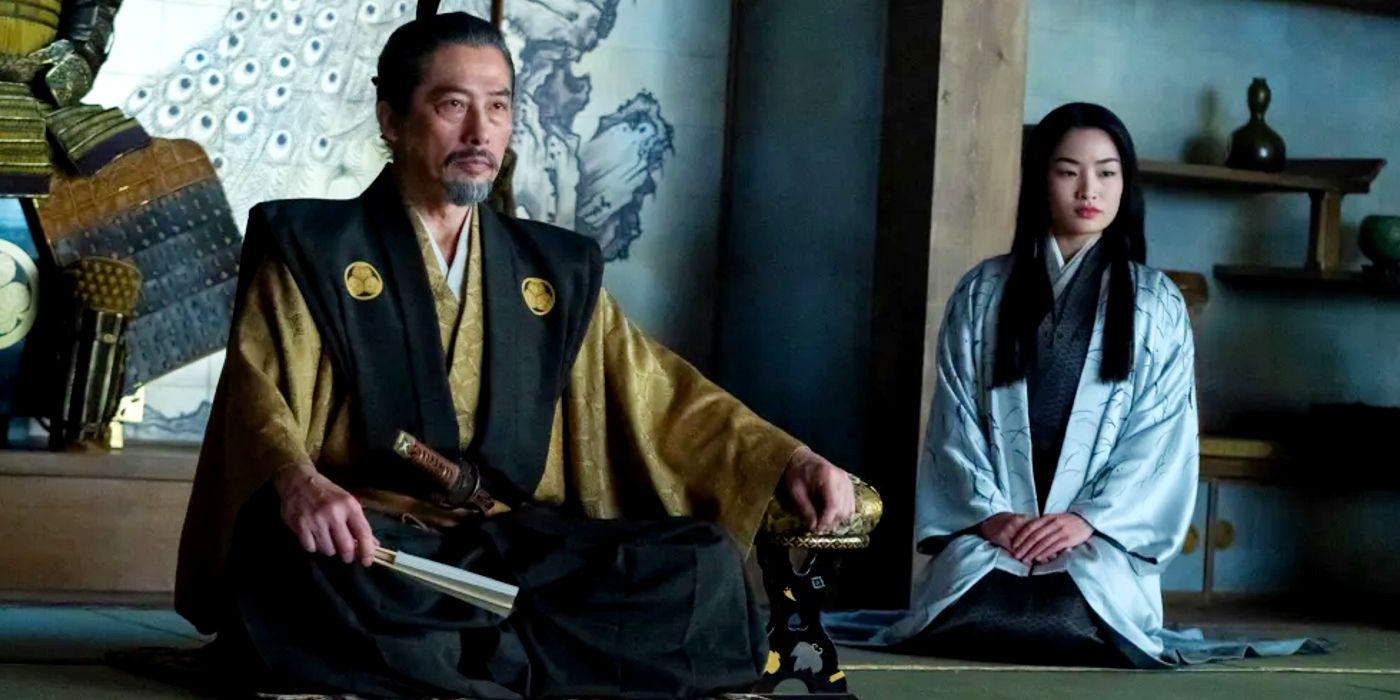
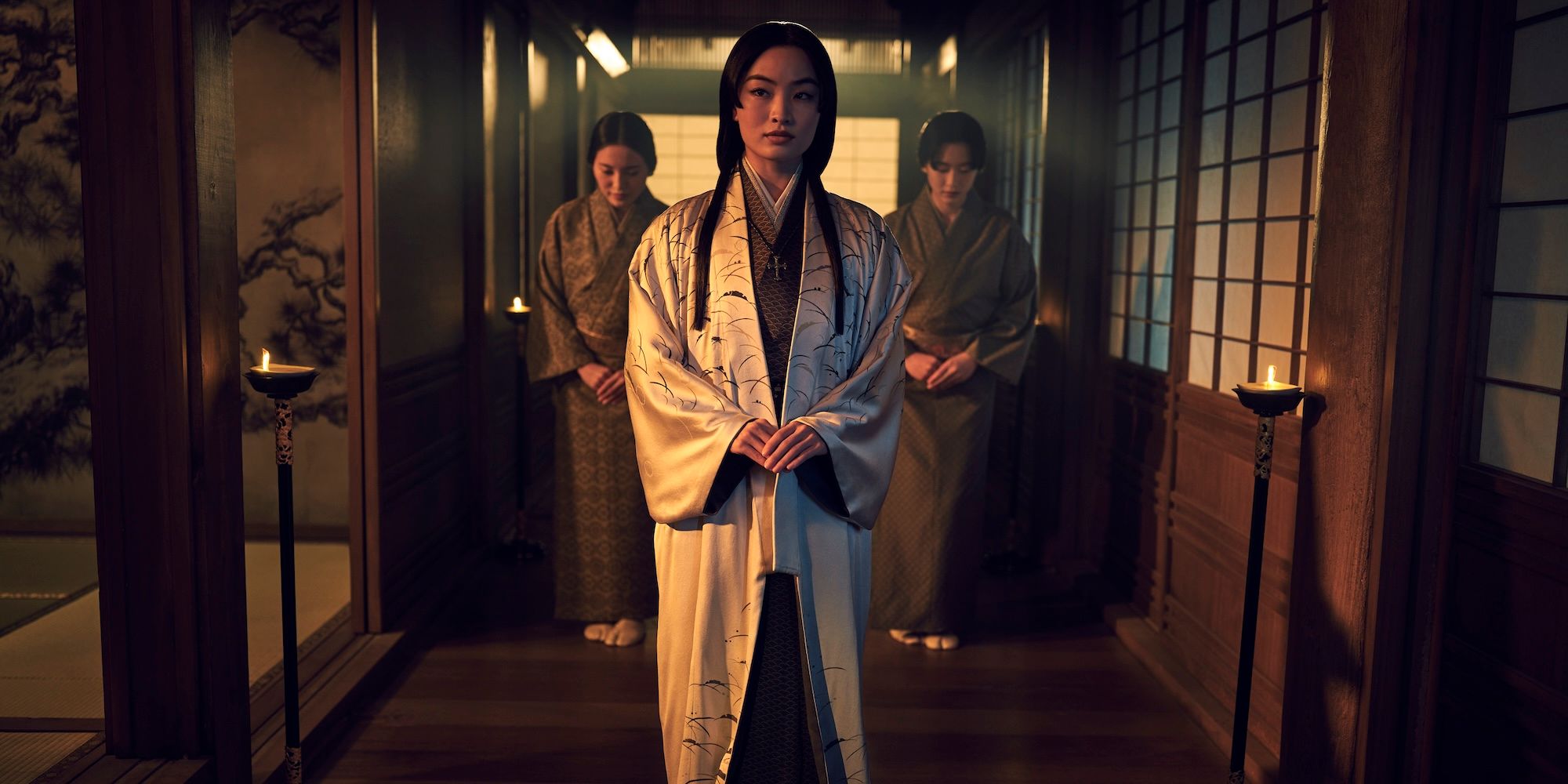
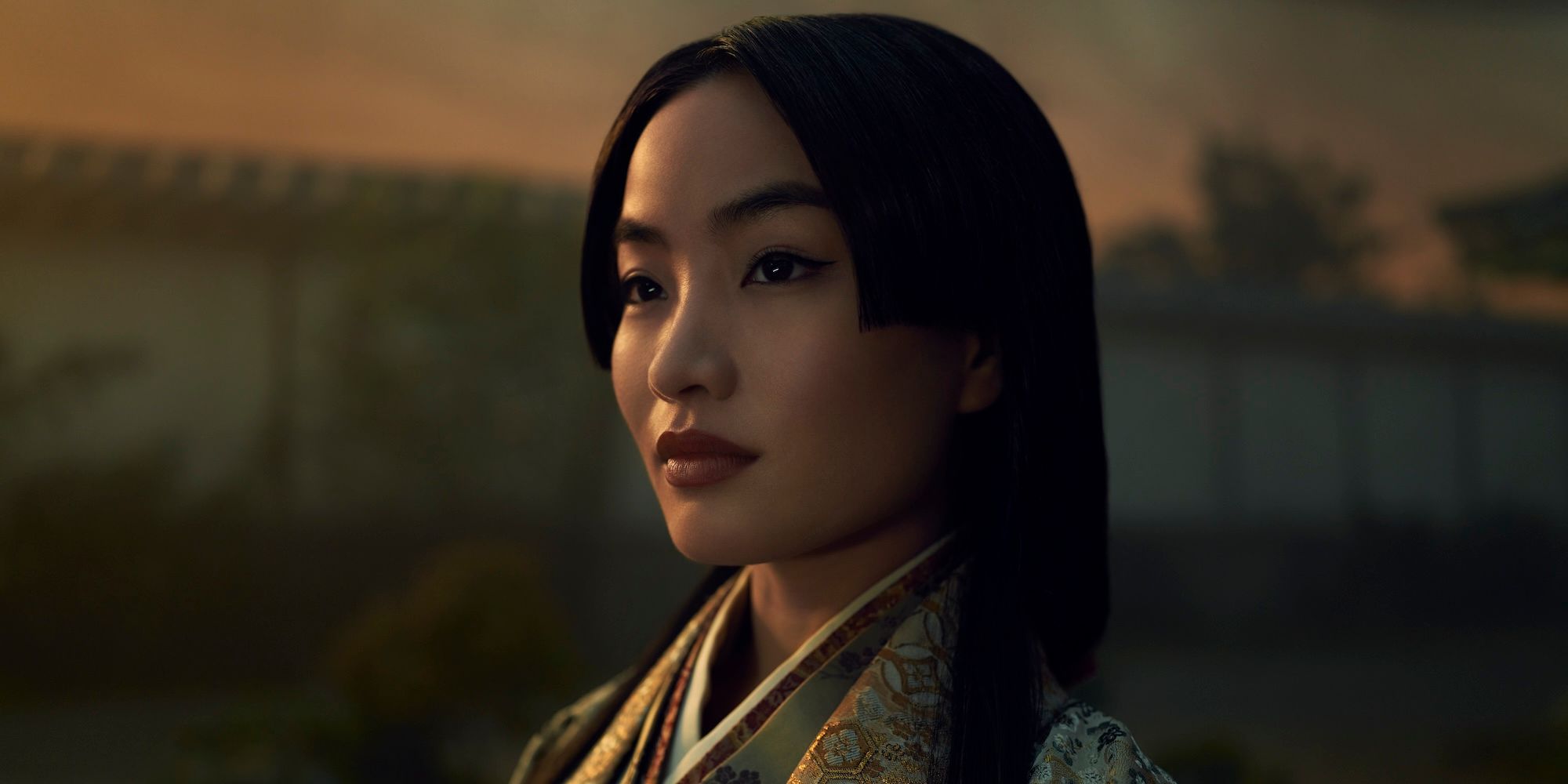
The poem that Mariko recites is an effective summary, in many ways, of how she has lived her entire life. She has long been a selfless servant to others, and it was only her societal bond to her husband, Buntaro (Shinnosuke Abe), that kept her from taking her own life. Mariko’s family tragically died due to the traitorous actions of her father, and it is revealed in an earlier episode that she has wanted to end her own life for quite some time due to the shame and disgrace that stems from this incident. Buntaro, however, forbade it.
In addition to the shame Mariko feels, she has also been committed to serving Lord Toranaga and doing his bidding. Her journey to Osaka is ultimately all part of Toranaga’s Crimson Sky plan, and she ultimately uses her death to destabilize Ishido’s (Takehiro Hira) position of power in the city. She essentially forces his hand and draws attention to the fact that he is keeping daimyos and their families hostage in the city as the basis for his political power.
Mariko’s death in Shōgun is tragic, but it is in keeping with how the character has been established throughout the series. The moment is sure to have major implications for other Shōgun characters, with Toranaga now poised to take control of Osaka. While Blackthorne will undoubtedly be distraught at Mariko’s sacrifice, Sawai’s character, from the touching poem she reads, clearly understood the power of death and how her life could be best spent in service of an idea greater than herself.




